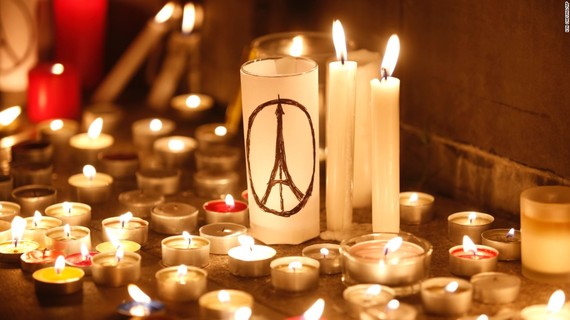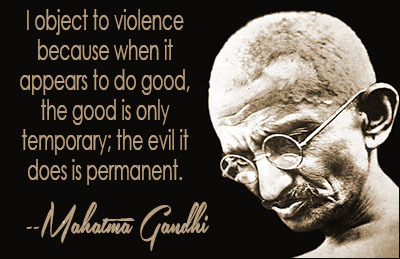Just a few day ago, I felt a deep sense of honor and pride as my grandfather received France's Legion of Honor, the highest honor given by the French government, for his part in fighting Nazi Germany - the evil of his time - and helping liberate France with other brave soldiers of his generation.
After Friday's events, my heart hurts with Paris, Beirut, Iraq, Syria, and all the places with ongoing conflict as they reconcile a new form of terror. It strikes me that my generation faces similar evil - fanaticism, extremism, and intolerance - which are spreading far and wide. Unlike in my grandfather's time, however, we can't always see this enemy. They transcend borders, and penetrate the hearts and minds of people longing for a sense of power in their lives. They are an enemy that seems to only find unity and meaning by creating terror for others.
The default response seems to be to give more power to our governments to fight this new threat, in the form of more weapons, more killing and more loss of life. At first, this feels justified, as a satisfying response to the injustice and horrors we see over and over again on the news. But on further reflection, it becomes less clear to me why there is the illusion of strength in violence. Why do we associate strength with those who are armed? Why is it that we unconsciously believe more violence will lead us anywhere but where we stand today. As we weigh if this is truly the only path to peace, we should consider the words of leaders like Mahatma Gandhi: "I object to violence because when it appears to do good, the good is only temporary: the evil it does is permanent." On reflection, it begs the question: While it may make us feel we're in control, in meeting violence with violence, are we actually fueling the very enemy we are up against?
If not violence, where can we look to for answers to defeat such an enemy? What is a new path forward? My hope is the path of tolerance, shared prosperity, and forgiveness. As a student of peace ambassador Sri Sri Ravi Shankar, I have seen how approaches that uplift the spirit and connect people to their shared humanity provide meaning, hope and healing in war torn countries like Sri Lanka, Kosovo, and Columbia. As a student of history, I am inspired by the leaders of past generations who felt the only sustainable way forward was through non-violence. Those movements could inform us about a possible path forward before we act. While the correct path forward against this enemy remains uncertain, what is clear to me is that we cannot fight injustice with more unjust actions, like blaming the very people who are trying to flee this enemy. Wouldn't a response of unwavering humanity towards all the victims of this new enemy show our real strength?
I hope that I can answer the call to the threat of this time as my grandfather did before me, but as an ambassador of peace and reconciliation. Is this possible with this new enemy? What is the consequence of not trying a different path in response to terror? As John F. Kennedy stated many years ago: "Those who make peaceful revolution impossible, make violent revolution inevitable."


